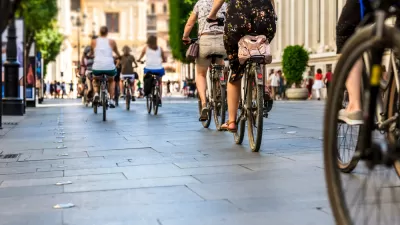Energy shortages in coal, natural gas, and diesel fuel are constraining India's growth. At the heart of the shortages are government subsidies that keep prices low, state-run monopolies that are unable to increase production, and costly imports.
Indian correspondents Amol Sharma and Megh Bahree describe how the shortages of all three fossil fuels hamper economic growth in the sub-continent.
"A shortage of coal, which accounts for more than half of the nation's energy supply, is crippling the power sector, forcing companies to delay the opening of multibillion-dollar projects. India in April announced an 80% jump in coal imports ...but many plants still run below capacity for lack of coal."
Electricity shortages have resulted in clinics being forced to dump vaccines due to lack of continual refrigeration. As many as 400 million rural residents may lack access to electricity.
Coal shortages are largely a result of the inability of Coal India, India's state-run monopoly, to produce enough due to many factors, including old equipment and security threats.
The video shows an operator at a new plant explaining that he has only five days worth of coal stock - when a month's worth should be available.
"(Prime Minister Manmohan Singh) is beginning to realize that there's a very bleak outlook in terms of energy security, and that this is going to create the single largest constraint on the economy", said one energy consultant.
Deregulation of energy will be challenging.
"State-run energy companies are racking up billions of dollars in losses by selling auto fuel, cooking gas and electricity at artificially low prices to protect consumers from global cost increases." Consequently, residents expect low prices on these fuels.
"India has a very distorted system of subsidies," Jaipal Reddy, minister for petroleum and natural gas, said. "But how, in a vibrant democracy like in India, do you change the system suddenly?"
Note: Link to article without WSJ subscription may be time-limited.
FULL STORY: Grinding Energy Shortage Takes Toll on India's Growth

Alabama: Trump Terminates Settlements for Black Communities Harmed By Raw Sewage
Trump deemed the landmark civil rights agreement “illegal DEI and environmental justice policy.”

Planetizen Federal Action Tracker
A weekly monitor of how Trump’s orders and actions are impacting planners and planning in America.

The 120 Year Old Tiny Home Villages That Sheltered San Francisco’s Earthquake Refugees
More than a century ago, San Francisco mobilized to house thousands of residents displaced by the 1906 earthquake. Could their strategy offer a model for the present?

LA’s Tree Emergency Goes Beyond Vandalism
After a vandal destroyed dozens of downtown LA trees, Mayor Karen Bass vowed to replace them. Days later, she slashed the city’s tree budget.

Sacramento Leads Nation With Bus-Mounted Bike Lane Enforcement Cameras
The city is the first to use its bus-mounted traffic enforcement system to cite drivers who park or drive in bike lanes.

Seattle Voters Approve Social Housing Referendum
Voters approved a corporate tax to fund the city’s housing authority despite an opposition campaign funded by Amazon and Microsoft.
Urban Design for Planners 1: Software Tools
This six-course series explores essential urban design concepts using open source software and equips planners with the tools they need to participate fully in the urban design process.
Planning for Universal Design
Learn the tools for implementing Universal Design in planning regulations.
Ada County Highway District
Clanton & Associates, Inc.
Jessamine County Fiscal Court
Institute for Housing and Urban Development Studies (IHS)
City of Grandview
Harvard GSD Executive Education
Toledo-Lucas County Plan Commissions
Salt Lake City
NYU Wagner Graduate School of Public Service



























